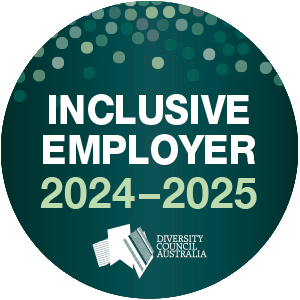With the 16 Days of Activism Against Gender-Based Violence having just finished and the #MeToo movement here to stay, people are increasingly asking what they can do to counter the harmful behaviours and attitudes in their own circles. One of the #MeToo movement’s most recognisable advocates, Rose McGowan, told The Project recently that “we just need a cultural reset… It’s about respect.”
But what does changing culture look like in practice? It’s easy to feel overwhelmed or uncomfortable, at the thought of tackling gender inequality and the disrespectful behaviour and attitudes that stem from it. No to Violence Training Officer, Kirk, who developed No to Violence’s newly launched Active Bystander Training, is the first to acknowledge the training won’t make this social issue any less complex but says it will hopefully provide simple interventions for challenging it. “Asking curious questions and creating space for people to unpack gender stereotypes, is something we can all do” says Kirk.
Drawing on No to Violence’s 25 years of experience working with men to change their violent behaviour, this 4-hour training supports people to have everyday conversations that challenge the gendered drivers of men’s use of family violence. Participants learn to identify subtle and complicit reinforcement of sexist beliefs in everyday conversations and are given the chance to put their theory into action.
This training is for challenging “non-crisis situations where people aren’t being explicitly harassed, but rather the everyday conversations where the gendered drivers of family violence are reinforced.” It is in these everyday situations, such as challenging language like ‘boys will be boys’ or ‘be the man of the house’, that Kirk suspects No to Violence’s knowledge of interventions that invite critique of gendered beliefs may be useful.
“When researching this topic, I found reports such as VicHealth’s survey of bystander knowledge, attitudes and behaviours in preventing violence against women, found while there was strong support for addressing violence and discrimination against women, survey respondents felt low level sexism and gender discrimination were not thought of as serious” says Kirk.
“It’s important we address these broader social issues, if we’re going to make real changes at the pointy end of violence against women” says Kirk.
People working in a range of settings from foster care to construction have now participated in the training, all taking away something different to the person sitting next to them.
Rather than walk away with just a few tools for having difficult conversations, Kirk hopes his training will help people understand that men’s use of family violence is a symptom of a broader social issue of gender inequity that’s woven through our day to day life and we can all be accountable for contributing to change.
Zena from Fostering Connections says the training challenged her in ways she didn’t expect. “I learned about my own subconscious biases, assumptions and expectations when it comes to gender stereotypes and social constructs… And how I’ve imposed them on myself and my loved ones. I was challenged by ideas and ideals I have internalised and parts of myself I have rejected as a result… it’s a revelation on many levels” says Zena.
Danielle, from Star Health’s men’s behaviour change program, says that despite the obvious men’s family violence knowledge within her group, the training was “illuminating.” She says it gave her team an opportunity to “slow down and reflect on the issues they work with every day in a different space.”
She says the content covered would also benefit workers in non-health services. “I know a lawyer, who tells me she is receiving a high number of lawsuits related to workplace misconduct at the moment. I think this training encourages people to be more sensitive in the way they speak to each other” says Danielle.
Like anything worth doing, inviting people to rethink how they relate to each other and have more productive conversations about gender inequality, will be challenging. But if we are serious about ending men’s use of violence, we need to re-cultivate the ground from which it grows.
For more information or to book an Active Bystander training session, call 03 9487 4500 or email training@ntv.org.au









